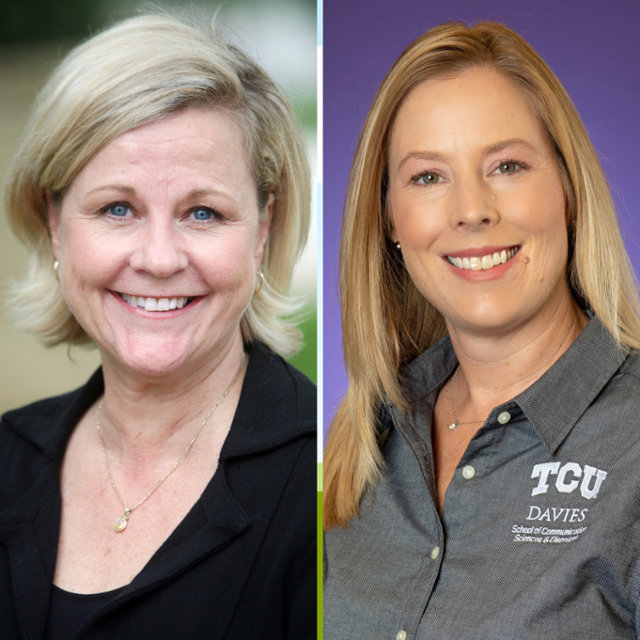Parenting is stressful, no matter what your child’s age or challenges. Parents with young children who stutter have additional uncertainties of what life will be like for their child. Experts say they face numerous questions: “Will the condition last forever?” “Did I contribute to it?” And, like every parent, “How can I help them?”
The child also may suffer. They can feel frustrated or embarrassed, and the way they may deal with their speech disorder is to talk very little or not at all, experts report. They are also more likely to be bullied and have lower self-esteem as they move into adolescence.

To assist, TCU’s Davies School of Communications Sciences & Disorders has for decades offered support groups for those in the community who stutter. One is S-POPS, Support for Parents of Preschoolers Who Stutter. The other serves children ages 7-17 and is a partnership between TCU, the Fort Worth ISD and the local chapter of National Stuttering Association.
S-POPS
Karen Hennington, assistant professor of professional practice with the Davies School, supports S-POPS, which is a collaborative effort between five area speech-language pathologists (SLPs).
“A few years ago, we recognized that there were robust school-age and adult support programs for those who stutter, but not for preschoolers, which is when parents really first begin to need the help,” said Hennington. That’s because stuttering usually begins between ages of 2 and 5.
S-POPS provides a monthly meeting for preschool parents to receive information about stuttering as well as a support group that gives them an opportunity to meet and talk about their challenges. The SLPs take turns hosting meetings virtually.
“We started doing Zoom before it became the norm, because it eliminated the need for the parents to find babysitting in order to attend the meeting,” Hennington explained. “During the meeting, we answer technical questions and offer education, without prescribing a treatment.”
The leaders provide broad suggestions to parents, like how to acknowledge the stuttering and ways to support their children. They also share the science behind the impediment: Stuttering is a neurologically based disorder that affects boys more than girls. In the case of preschoolers, about 80% of cases resolve.
The forum also helps reduces parents’ feelings of isolation and uncertainty.
“Mainly, we want parents to know they’re not alone,” Hennington added. “It’s been a beautiful experience to watch them interact with one another.”
School-Aged Support
Jennifer Watson, a professor in the Davies School, is an expert when it comes to stuttering, and has spent much of her 40-year career addressing strategies for treating stuttering, including among school-aged children.
Because of her experience and connection to others in the community, more than a decade ago, Watson facilitated a partnership to support school-aged children and provide the professional community a forum and place for meeting this need.
“We had area SLPs who wanted to find a way to connect and support children who stutter and their families,” Watson recalled. “There is a stigma associated with stuttering. Together, we wanted to provide kids a safe place where they could come, build confidence and share.” That place was the Miller Speech & Hearing Clinic on the TCU campus.
The meetings are part of the National Stuttering Association and are led by Fort Worth ISD speech-language pathologists. They plan and run the monthly meetings at the clinic, and Watson believes the program is changing lives.
“The kids and families learn from one another, and friendships have formed,” she said. “The SLPs have a place to meet and connect with their clients.”
Another benefit is that Davies School students can observe and participate, which enhances the academic and clinical experience in the Harris College of Nursing & Health Sciences.
“They learn a lot in the classroom, but this experience is invaluable,” Watson said. “One student noted that these children can teach us more than we can teach them.”
For more information, contact chapter Leaders Lori Colletti or Kerri Berard. For more information about S-POPS, contact Karen Hennington.